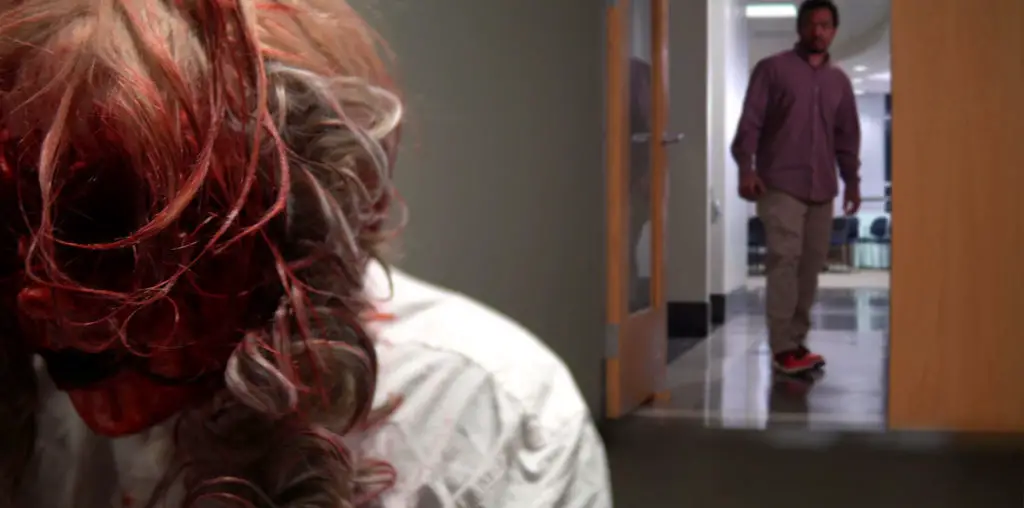
In 1948, Vittorio De Sica’s Bicycle Thieves delivered a subdued, honest alternative to the hardscrabble noirs that American studios were churning out. The American crime films of the 1940s were great, but the expressionistic style and requisite star power of films like The Maltese Falcon and Out Of The Past matched their larger-than-life narratives. In contrast, Bicycle Thieves was a restrained, believable story that straddled the realms of lower-class desperation and family life. It looked at “crime” not as a genre of superhuman gunmen and impossible conspiracies, but as something that real people did out of necessity. And instead of lecturing the audience about postwar social ills, it made its point with strong characters and a premise that pulled viewers in.
More than seventy years later, a film like Bicycle Thieves comes as a surprise, if not the revelation it once would have been. Its brand of “pure” social realism (believable situations, no-name actors) is still carried out by filmmakers like the Dardenne brothers, but these contemporary films usually take more narrative risks and don’t reach a mainstream audience. Most modern crime movies, especially the ones about families, take the stylized route of Road To Perdition and Animal Kingdom or the high-octane thrills of Taken. In that context, it’s refreshing to see a film like Jason Raftopoulos’s West Of Sunshine, which wears its debt to Italian neorealism on its sleeve.

“When he blows a lunchtime horseracing win on more bets, a stressful day turns into a full-on race against time to come up with the cash.”
The first scenes introduce us to Jim (Damian Hill), a dad of the deadbeat-adjacent variety. When we meet him, he’s on his way to work, and on his way to pick up his kid from his ex’s; he’s having trouble with his priorities. Providence has saddled him with the worst possible timing for a bring-your-kid-to-work day. He hasn’t informed his bosses that Alex (Ty Perham) will tag along on his deliveries, and he’s in deep with a local loan shark due to his gambling habit. When he blows a lunchtime horseracing win on more bets, a stressful day turns into a full-on race against time to come up with the cash.
West Of Sunshine contains some neo-noir tropes—loan sharks, drug dealers, and gambling—and the ticking-time-bomb story gives it a sense of urgency. But it feels slight in a way that paradoxically gives it more weight. Nobody gets shot or stabbed. The loan shark doesn’t set anyone on fire or smash anyone’s fingers with a hammer. The drug kingpin is a suburban mom who, we understand from the first shot she’s in, isn’t the type to rail an entire gram off a glass table and threaten Jim’s family. The world of West Of Sunshine is a functional, stable one for its struggling characters, not an underbelly that exists only for the audience’s titillation.

“The world of West Of Sunshine is a functional, stable one for its struggling characters, not an underbelly that exists only for the audience’s titillation.”
Unfortunately, that same slightness prevents West Of Sunshine from reaching dramatic highs. Despite a smidge of violence in the closing minutes, the stakes for the main characters never rise above “slightly flustered.” And the drama and its catharsis are, unlike those of modern social realist masterpieces like Lance Hammer’s Ballast and the Dardenne’s work, totally predictable. That’s not to say they’re not effective: Hill and Perham have great onscreen chemistry, possibly because Hill is actually Perham’s stepfather. All of the performances are at least solid, and for an indie, the production value is impressive. It won’t reduce you to a weeping mess, but at 78 minutes it’s a trim, satisfying drama that does justice to its inspirations.
West Of Sunshine (2019) Written and directed by Jason Raftopoulos. Starring Damian Hill, Ty Perham, Arthur Angel, Kat Stewart, Tony Nikolakopoulos, Kaarin Fairfax.
7 out of 10

